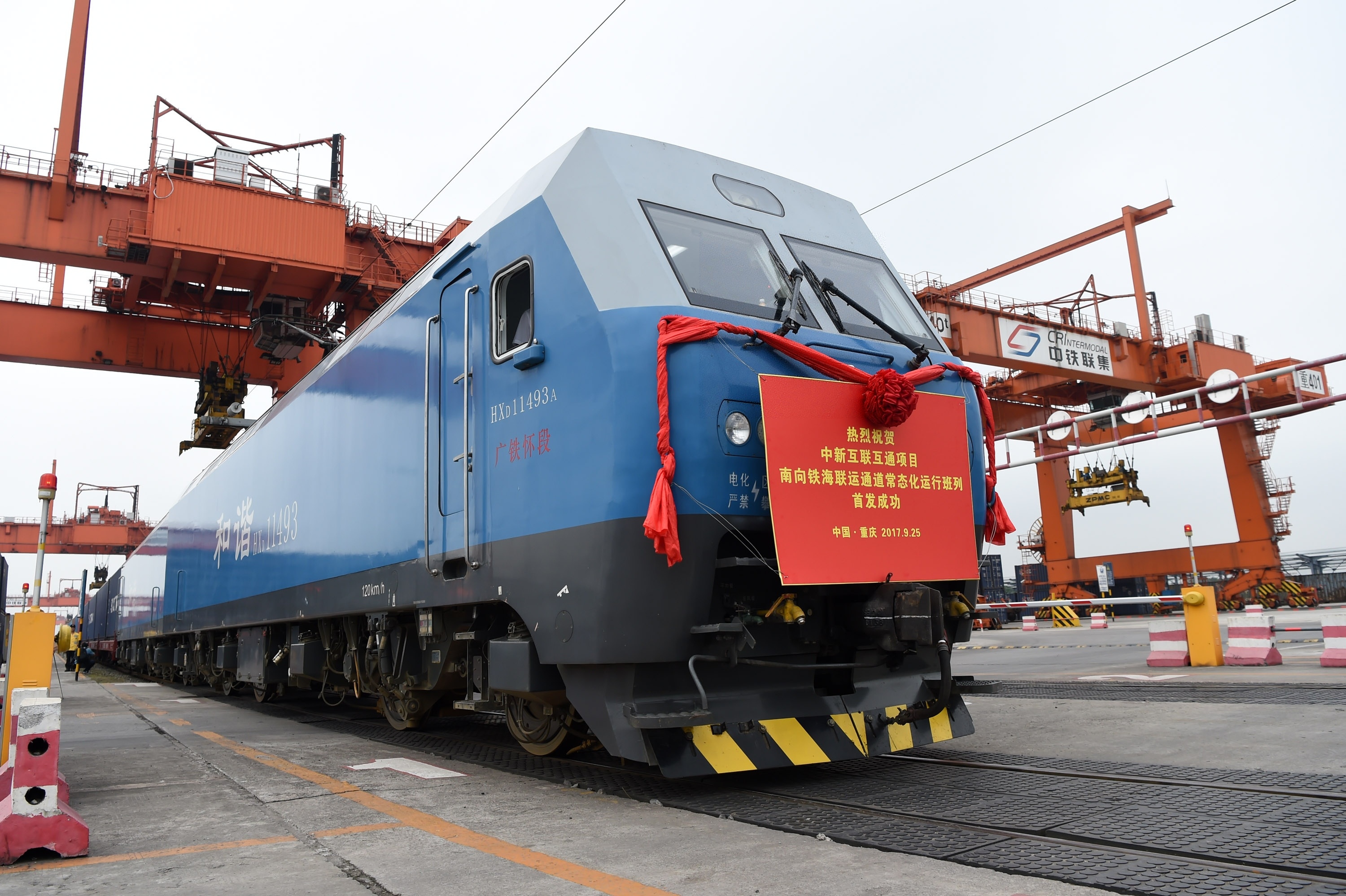BRI: Platform for promoting multilateralism and deeper integration
- By Mahendra Subedi
 0 Comment(s)
0 Comment(s) Print
Print E-mail China.org.cn, April 24, 2019
E-mail China.org.cn, April 24, 2019

The second Belt and Road Forum for International Cooperation (BRF) will be held on April 25-27 in Beijing and is expected to bring the world closer for the goal of promoting multilateralism. The forum will be attended by some 5,000 participants from more than 150 countries, including 37 heads of state and government leaders. The second BRF, which is taking place amid growing fears of protectionism, is a crucial platform for the world to bring about high-quality cooperation under the Belt and Road Initiative (BRI). The forum themed "Belt and Road Cooperation: Shaping a Brighter Shared Future" is expected to play a key role in pushing the global economy forward despite some impasses.
The BRI was launched in 2013 to deepen cooperation and help build a shared common future between global economies. It has largely contributed to the global economy through infrastructure development and enhanced connectivity in well-off economies as well as marginalized societies.
So far, the BRI has played an instrumental role by improving policy coordination, connectivity measures, a free and fair trading system, financial cooperation and people-to-people relations in both developed and developing partner countries. While working on these five key areas, the BRI has been hailed for upholding multilateralism, globalization and broader cooperation based on the principles of mutual respect, equality and win-win cooperation. The BRI has created new opportunities for the countries involved, not only in infrastructure development, but also toward improving the livelihood of their citizens.
Likewise, the BRI has had a positive impact and helps to improve the competitiveness in many countries given the huge number of projects kicking off and positively impacting the lives of millions. These projects are not only about developing infrastructure, but also supporting trade facilitation, economic competitiveness and improving the livelihood of the people in those regions. It's been widely reported how BRI projects have helped to boost Bangladesh's GDP by around 1 to 1.5 percentage points while Pakistan, Sri Lanka and the Maldives have also witnessed substantive progress since joining the BRI. According to a recent report by the World Bank, Bangladesh and Nepal – the two BRI partners in South Asia – are likely to remain the second and third fastest growing economies respectively in South Asia.

At the same time, the BRI is also helping the world meet many of the UN's 17 Sustainable Development Goals (SDGs). Given this, the BRI is proving to be increasingly inclusive and offering many opportunities to the peoples and nations around the world. According to the Asian Financial Development Report on Infrastructure Finance, the BRI has the potential to fill large infrastructure investment gaps in ASEAN countries. The report stated that the BRI can be impactful, as it can leverage the financial resources of nearly 70 economies, including China, to create new and affordable financing for infrastructure construction. "Such positive progress will be further fueled by the BRI's ability to guide private investment," the report mentions. At a time when many countries are grappling with downward pressure on their economies against the backdrop of rising protectionism and volatile markets, the BRI and the projects under its framework will help propel economic growth rates and reduce poverty. It will also increase job opportunities in many countries while encouraging countries to embrace new technological advancements and innovation. The BRI has a truly global scale. Its role is crucial in furthering the development of international relations to seek an inclusive path of mutually beneficial cooperation in order to propel the world economy to greater heights.
The time has come to improve the synergy between the BRI and other development strategies. Through this, connectivity for regional integration and multilateralism as well as the economic liberalization of world economies can be enhanced. As more Chinese enterprises' non-financial investments along the BRI routes continue to boom, this could benefit a large global population through job creation, the production of high-quality goods, trade diversification and improved services.
However, further intensive collaboration is needed among major and emerging economies to make the BRI a successful initiative and to grow its economic pie. Frequent communication among scholars, academicians and think tanks as well as high-level dialogues among top leaders are equally important to keep things on the right track. Hence, the second BRF is a welcome step to build a more inclusive form of globalization. Furthermore, the equal distribution of development will spill over to less advantaged people around the world. The BRI will indeed create a strong bond while promoting an open trading system – a key to global prosperity.
The time has come for all to seize the opportunity to build multilateralism and uphold the principles of globalization by firmly grasping the spirit of BRI. The BRI has unveiled new development opportunities through high-level cooperation on infrastructure development, robust connectivity and policy dialogue adapted to suit different countries' local context.
Mahendra Subedi is a social researcher and commentator from Nepal.
Opinion articles reflect the views of their authors, not necessarily those of China.org.cn.
If you would like to contribute, please contact us at opinion@china.org.cn.





